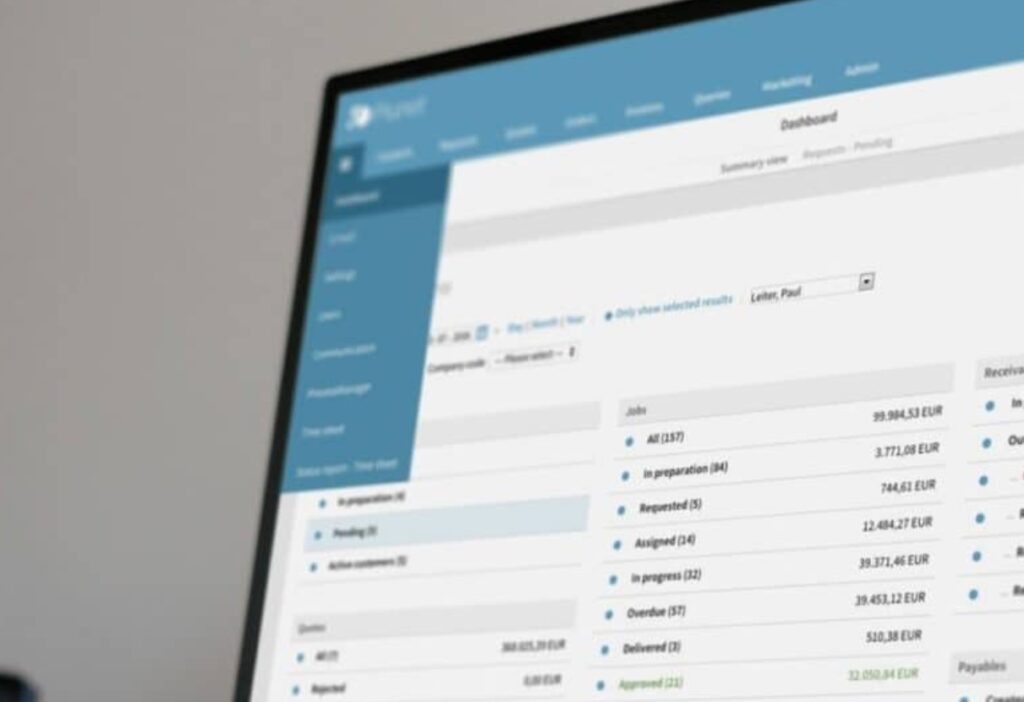
7 Reasons Why Start-ups Need Project Management Systems
Start-ups need to take many risks, to establish themselves in the market, while planning, deciding on a budget, delivering value to their clients, and executing projects. Therefore, a start-up’s success, in the long run, depends on how effective they are in project management.
Project management is instrumental in enhancing the performance of a business by polishing its practices. It encompasses managing various aspects of business such as quality checks, budget management, dividing roles, and documentation.
To ease this extensive and often tedious process, there are many project management systems available in the market that help start-ups get more work done in less time.

Here are 7 reasons why your start-up needs a project management system:
- Increases Productivity: Project Development systems boost the productivity of employees effectively as it keeps everyone on track and helps them meet deadlines. These systems make sure that all the project stakeholders get regular updates and give employees a simple way to communicate with each other. As employees get more control and visibility across the organization, they become more accountable and are on the same page as others working on the project. The right project management systems will enable file sharing so that important documents are accessible to all without them having to call up different people for getting the required inputs and information. Project Management systems basically remove all the possible roadblocks to productivity and allow employees to get things done without any hassle or delays.
- Creates and Organises the Workflow: It is important that all tasks are fulfilled for the success of any project, if any task is skipped it can negatively impact the entire project and jeopardize your company’s reputation. Project management systems can help you break up projects into smaller tasks, create a defined workflow, and divide these tasks among team members to prevent any misunderstandings or chaos in the end moment. These systems can help you map the different stages of a task before its completion and makes it extremely convenient for managers to stay updated on each team member’s progress.
- Helps in Time Management: To successfully complete projects it is important to manage time without compromising on the quality of deliverables. Start-ups often tend to put in a lot of time on a single project while neglecting others. Spending more time than planned on certain tasks also means that you are overspending your resources and manpower. This is where project management systems can step up and help you schedule your time more effectively. These systems often come with information alerts, task trackers, and deadline reminder features, which can help start-ups work in accordance with the time schedule and plan their daily activities in a productive manner.

Source: bwms.eu - Facilitates Communication: Reporting the status of every task can be extremely time-consuming and tedious for team members. This is where the project management system steps in and helps the decision-makers, clients, and team members communicate easily while ensuring complete transparency. These systems gather data from team members from time to time and present it using charts, tables, or graphs for everyone who has access to the system dashboard to see. It helps start-ups stay in touch with their clients by constantly reassuring them about the project’s progress. Additionally, leaders and team members can easily review each other’s work, leave feedback and suggest edits if required through project management systems.
- Manages Documentation: Documenting daily activities is important for start-ups as it adds to their credibility in the market and keeps the client on the same page as the project team. Project management systems can help your start-up document each step taken during a project. These systems make sure that important documents can be shared and accessed securely by team members and the other stakeholders and offer cloud-based storage, which makes these files easier to annotate, modify and recover when needed.
- Helps in Cost Controlling: Cost Controlling ensures that all project tasks are performed within budgetary constraints. Start-ups are expected to deliver high-quality products within the given budget. Their reputation and performance depend on how well they operate and finish projects in a cost-effective manner. Project management systems help teams manage the available resources effectively to prevent the project cost from hiking beyond the set budget limitations. These systems showcase key financial metrics, for instance, planned vs spend money, Return on Investment (ROI), and even the Gross Profit Margin. Tracking these metrics can help you avoid any budget overruns and level your resources accordingly.

Source: SaaS Metrics - Identifies Risks: Almost all projects come with certain risks and making your start-up successful does require you to take calculated risks. However, if there is a risk of your project failing, it can tamper with your reputation and may require you to spend additional resources on damage control. With the support of a project management system, you can identify these risks beforehand and make sure that your project does not go off track. These project management systems analyze the potential risks and help you take precautions or deal with these risks in an efficient manner. Risk mitigation and identification are vital as no project will work out in accordance with your initial plans. Project management systems can avoid risky situations that can negatively affect your project output by giving you the right suggestions and insights.
Project management can be tricky if your employees lack the knowledge and management expertise. Using a project management system can help your start-up determine its work style as it updates your company standards and brings in a fresh outlook. With these systems, you can easily handle multiple projects without fail as a start-up and in turn, attract new clients.
All activities right from the ground to the top level can be optimized, automated, and smoothened by project management systems. There are specific project management tools such as asana, Trello, and Wrike, that can be used for encouraging collaboration and communication within employees. Start-ups must invest in project management systems to achieve their objectives in a cost-effective, risk-free, and organized manner.

Author Bio:
Poorvee Kalyani Alla is a mass communication graduate, copywriter, and an avid blogger who writes on technical and lifestyle-related topics for West Agile Labs, Exegy Consulting, Jewellerista, etc.